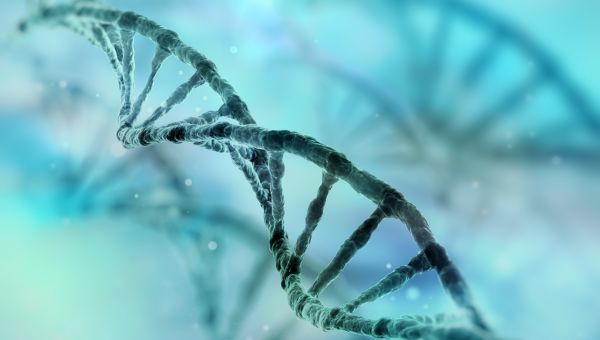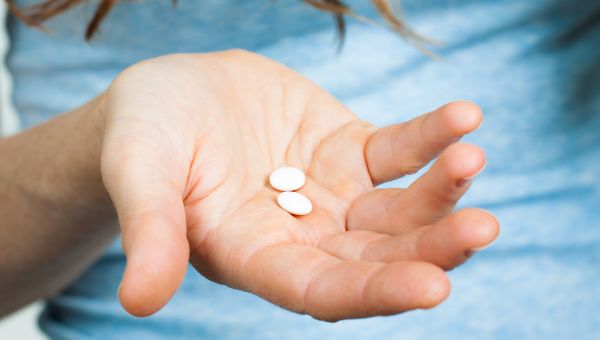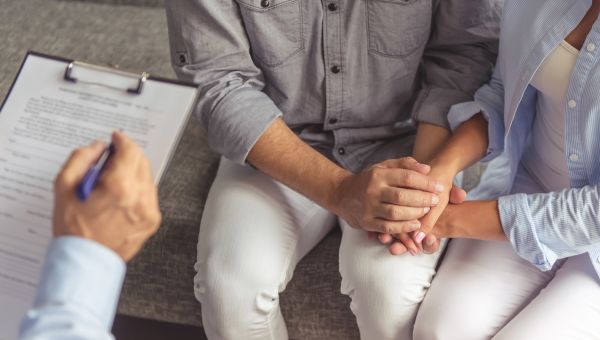9 things everyone should know about depression (even if you're not depressed)
It can affect anyone, aggravate pain, and worsen heart disease. But that’s not all.
Updated on January 17, 2024

Despite increased awareness in recent years, depression remains difficult to talk about for many people. The mood disorder, which causes persistent sadness and loss of interest, is common and can affect anyone at any age. In fact, about 18 percent of United States adults report being diagnosed at some point, according to the Centers for Disease Control and Prevention (CDC).
Depression shouldn’t be something you have to silently struggle with. Here’s what you should know about its genetic component, the difference between depression and sadness, how to best seek treatment, and more.

How much of depression is genetic?
If you are feeling depressed, you may be wondering how your family history plays in. While researchers continue to investigate how much of depression is genetic versus psychological, they do know that heredity can play a role.
“It's not a one-to-one ratio, like if my mom is depressed then I will be too,” says Shanna Nasche, a licensed professional counselor in Lewisville, Texas. However, your mother might have passed certain genes down to you that predispose you to becoming depressed. In general, if someone has a parent or family member with depression, they are two or three times more likely to develop the condition than the average person.

Can anyone become depressed?
Depression can affect anyone at any age, which is part of why awareness is critical. While the condition is linked to genetics and an imbalance of brain chemicals, it's also connected to situational stressors, like the loss of loved ones, relationship problems, and past or current abuse. In fact, reducing adverse childhood experiences (ACEs)—which include childhood violence, abuse, and family substance use issues—could reduce the number of adults with depression by up to 44 percent, according to the CDC.
Still others develop depression without a triggering trauma; they're simply vulnerable to the condition.
When alcohol and drugs are used to self-medicate, they can also make the problem worse. Or if someone doesn’t have strong social support, or loved ones to talk through the issues with, they may be more susceptible to becoming depressed.

Am I having a few bad days, or is it depression?
Unless you’re superhuman, it’s common to feel sad from time to time. But if you feel sad or have lost interest or pleasure in doing day-to-day activities for two weeks, it might be depression. Some of the other signs include:
- Feeling unworthy, guilty, or undeserving
- Little or no energy to engage in activities that once were exciting
- Weight and appetite fluctuation
- Change in sleep patterns; sleeping too little or for too long
- Low levels of concentration
- Thoughts of suicide
Seek help from a loved one, an HCP, or a mental health professional if you experience any of these symptoms—or a combination of multiple symptoms. If you're having thoughts of suicide, reach out to the 988 Suicide & Crisis Lifeline by calling or texting 988.

How can depression affect me physically?
"Depression can take a toll on your physical health and exacerbates existing health issues,” says Nasche. In many cases, those existing health issues can also worsen depression. These are just a few known ways it works on the body:
- Depression can aggravate pain, including headaches, gastrointestinal problems, and other chronic discomfort. Pain can exacerbate depression, too. This could be because pain and depression share a similar neurological path to the brain.
- It can make diabetes and heart disease worse, because it may lead to unhealthy lifestyle choices, like eating poorly or not getting enough physical activity. It can also increase stress hormones and glucose levels, and affect whether people take their medication correctly.
- Depression can affect the immune system, either directly or through factors like poor sleep or diet.
- It’s linked to alcohol and drug use, which can affect physical health.
If you are experiencing worsening health problems or pain, ask a healthcare provider (HCP) if it could be related to depression.

How can I tell someone I'm depressed?
Telling someone you have depression can be very difficult, but having the condition doesn’t mean you are weak. Tell your loved one you want to set up some time to chat and be prepared to answer their questions.
Nasche usually sees two types of reactions when her patients tell their loved ones that they are depressed. Many times, it's love and support. But since depression is frequently misunderstood, some people have questions or unexpected responses. “No matter how educated the person is, some people just don’t believe in depression,” says Nasche. She always gives people the option to bring their loved one into a therapy session. Ask your HCP about this if it seems like the right decision for you.

What treatment is available for depression?
After speaking with your HCP about why you are feeling depressed, you may opt for therapy. There are many types of therapy, and one kind may work better for you than another. Cognitive behavioral therapy, for example, involves structured sessions led by a mental health counselor, who helps address negative thinking in the day to day. It’s focuses heavily on how our thoughts affect our emotions and behaviors. Cognitive behavioral therapists believe that even if the situation doesn’t change, you can still alter the way you think about it.
There are also a number of medications available to treat depression. Prescription use depends on individual situation and a recommendation from an HCP. Some people may choose to address their depression with therapy alone, while others opt for medication, as well. Frequently, both are used in combination.

How does therapy work?
The number one question Nasche’s patients ask about depression is “How can I feel better?” She answers by relating it to other chronic diseases that must be managed, like diabetes. The condition may require changes in both behavior and lifestyle choices, which therapy can help you manage.
Among other things, a therapist can help you deal with events that have contributed to your depression and develop skills to cope with other events in the future. They can also pinpoint thought patterns or behaviors that contribute to depression, and work on ways to change them.
These behavioral changes are important. Some therapists work on developing interpersonal skills, which can help you socialize and communicate more effectively. “We've got to consciously work on shifting the mood by finding ways to integrate these behavioral changes into their typical day or week,” says Nasche.
However, depression management strategies must be simple enough to stick to. “I tell my patients that one of the first things that we are going to do is figure out a handful of tools that they are willing to use,” says Nasche.

Can I do anything to help my depression at home?
Outside of therapy, exercise is another healthy way to help ease symptoms of depression. Exercise releases endorphins, body chemicals that make you feel good. It can also distract you from negative thoughts and give you a sense of accomplishment. Try doing an at-home workout class or going for a short run outside. Even an unstructured workout, such as gardening or walking, can help improve your mood. It doesn’t need to be long for you to feel the effects, either. Several studies have shown that 20 to 30 minutes a day, several times per week, can improve symptoms.
Aside from exercise, getting adequate sleep is crucial, and finding social support can be beneficial for many people, too. Some support groups are online-only, whereas others meet in person. The Anxiety and Depression Association of America is a good place to begin your search.

How can I help a loved one with depression?
Many times, people with depression might not realize they are affected; they might think that their feelings of sadness are normal. “They don’t realize that their functioning could notably improve,” says Nasche.
If you know someone who may be struggling, encourage them to get help. Emphasize that depression is a medical condition. Explain that, just like going to the doctor for a physical every year, it’s important to be assessed for your mental health. A professional can talk with them about their emotions.
While depression is serious, it’s also treatable—and with help of loved ones, getting through it may be a little easier.
Lee B, Wang Y, Carlson SA, et al. National, State-Level, and County-Level Prevalence Estimates of Adults Aged ≥18 Years Self-Reporting a Lifetime Diagnosis of Depression — United States, 2020. MMWR Morb Mortal Wkly Rep 2023;72:644–650.
Centers for Disease Control and Prevention. National Center for Health Statistics. Depression. Reviewed November 6, 2023.
Chand SP, Arif H. Depression. StatPearls Publishing. January 2023.
National Institute of Mental Health. Depression. Last reviewed September 2023.
Centers for Disease Control and Prevention. Vital Signs: Adverse Childhood Experiences. Updated August 23, 2021.
Mayo Clinic. Depression (major depressive disorder). October 14, 2022.
Frank P, Batty GD, Pentti J, et al. Association Between Depression and Physical Conditions Requiring Hospitalization. JAMA Psychiatry. 2023;80(7):690–699.
Mayo Clinic. Pain and depression: Is there a link? April 3, 2019.
Centers for Disease Control and Prevention. Diabetes: Diabetes and Mental Health. Reviewed May 15, 2023.
American Heart Association. How Does Depression Affect the Heart? Reviewed June 22, 2021.
You Matter: 988 Lifeline. Talking About Depression. Accessed January 12, 2024.
Substance Abuse and Mental Health Services Administration (SAMHSA). Depression. Updated April 4, 2023.
American Psychological Association. Overcoming depression: How psychologists help with depressive disorders. Updated March 7, 2023.
American Psychological Association. Depression. Accessed January 12, 2024.
Mayo Clinic. Depression: Supporting a family member or friend. April 5, 2023.
National Health Service (NHS UK). How to help someone with depression. Reviewed August 18, 2022.
More On


video

article

slideshow


video


video
